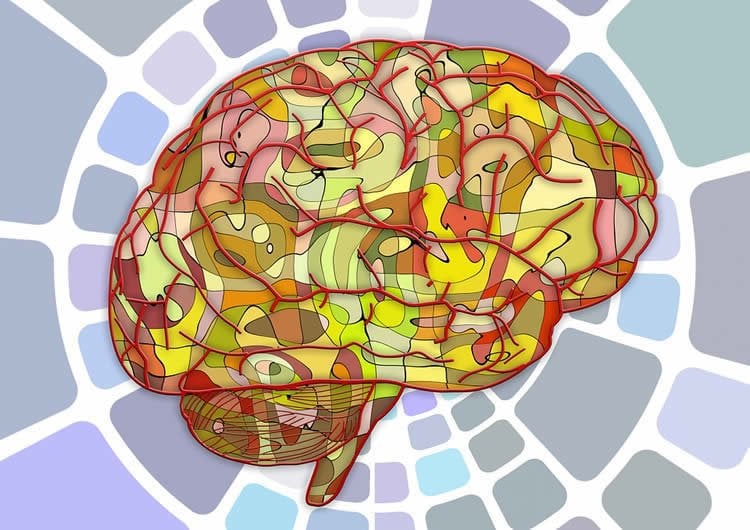Summary: A new paper looks at the controversies surrounding adult neurogenesis.
Source: Cell Press.
Since the 1960s, consensus about whether human adults generate new neurons with age has swayed back and forth from “yes, at least in some places in the brain” to “no, not at all.” The debate reignited in 2018 when two headline-grabbing papers, published weeks apart, made convincing arguments for each side. In a review paper published January 24 in the journal Trends in Neurosciences, University of British Columbia professor Jason Snyder argues that the conflicting reports are reconcilable, reveal issues related to the way we study the brain, and draw attention away from how enhancing adult neurogenesis, even artificially, could benefit human health.
“It’s clear that there is a lot of controversy, which to me seems unwarranted because a yes or no for ‘is there adult neurogenesis’ is a little too simplistic and distracts us from other important questions,” says Snyder. “It’s worth asking if methodological differences are the only reason that some people aren’t finding new neurons or if there is some truth to the observations that neurogenesis may be limited with age in humans. I wanted to take a quantitative look at the research and see where it all leads.”
One stand-out issue he found is that labs that find more neurogenesis in mice than in humans are studying it in young mice, while human research is often conducted in adults from middle to old age. In addition, primates and rodents develop most of their neurons at different times in their early development: human neuron populations peak during the first half of gestation, while mouse neurogenesis continues through birth or after birth. So the observation that there is more neurogenesis in mice might also be because the rodent brain develops later in life, Snyder writes.
“The literature also indicates that if you look at a middle-aged rodent, it doesn’t have much neurogenesis either,” he says. “If we were to study the same in relative-aged human subjects, I don’t think the story is much different. For much of the adult lifespan, we’re not bursting at the seams with new neurons. While that may be disconcerting for people, it does reconcile the field: it’s not that some studies are right and some are wrong.”

Snyder is still uncertain whether neurogenesis in adult humans occurs but says that if it does, the evidence suggests that it is happening at low rates and in specific parts of the brain, likely the hippocampus, where new memories are formed. There are many questions unanswered regarding what these new neurons would do, whether they have different functions throughout the lifecycle, and whether they would have therapeutic relevance.
“The neurogenesis field is a great case study because it may be one of the most dramatic examples of progress ping-ponging back and forth over the course of 50 years,” he says. “This is just how science works, but we shouldn’t let our search for a smoking gun stop us from asking better questions.”
“We’ve gone through phases where people didn’t even study the topic because a paper concluded adult neurogenesis didn’t occur, which meant labs weren’t investigating its potential for human health,” Snyder says. “We need to appreciate the work of others–everyone is producing a lot of really sound and solid stuff. But rather than focus on winning the debate, we need to collaborate more to go after the truth. The field is still finding its way.”
Funding: Work in the Snyder lab is supported by the Canadian Institutes of Health Research, the Natural Sciences and Engineering Research Council of Canada and the Michael Smith Foundation for Health Research.
Source: Carly Britton – Cell Press
Publisher: Organized by NeuroscienceNews.com.
Image Source: NeuroscienceNews.com image is in the public domain.
Original Research: Open access research for “Recalibrating the Relevance of Adult Neurogenesis” by Jason S. Snyder
in Trends in Neurosciences. Published January 24 2019.
doi:10.1016/j.tins.2018.12.001
[cbtabs][cbtab title=”MLA”]Cell Press”Lessons Learned From the Adult Neurogenesis Debate.” NeuroscienceNews. NeuroscienceNews, 25 January 2019.
<https://neurosciencenews.com/adult-neurogenesis-10642/>.[/cbtab][cbtab title=”APA”]Cell Press(2019, January 25). Lessons Learned From the Adult Neurogenesis Debate. NeuroscienceNews. Retrieved January 25, 2019 from https://neurosciencenews.com/adult-neurogenesis-10642/[/cbtab][cbtab title=”Chicago”]Cell Press”Lessons Learned From the Adult Neurogenesis Debate.” https://neurosciencenews.com/adult-neurogenesis-10642/ (accessed January 25, 2019).[/cbtab][/cbtabs]
Abstract
Recalibrating the Relevance of Adult Neurogenesis
Conflicting reports about whether adult hippocampal neurogenesis occurs in humans raise questions about its significance for human health and the relevance of animal models. Drawing upon published data, I review species’ neurogenesis rates across the lifespan and propose that accelerated neurodevelopmental timing is consistent with lower rates of neurogenesis in adult primates and humans. Nonetheless, protracted neurogenesis may produce populations of neurons that retain plastic properties for long intervals, and have distinct functions depending on when in the lifespan they were born. With some conceptual recalibration we may therefore be able to reconcile seemingly disparate findings and continue to ask how adult neurogenesis, as studied in animals, is relevant for human health.







